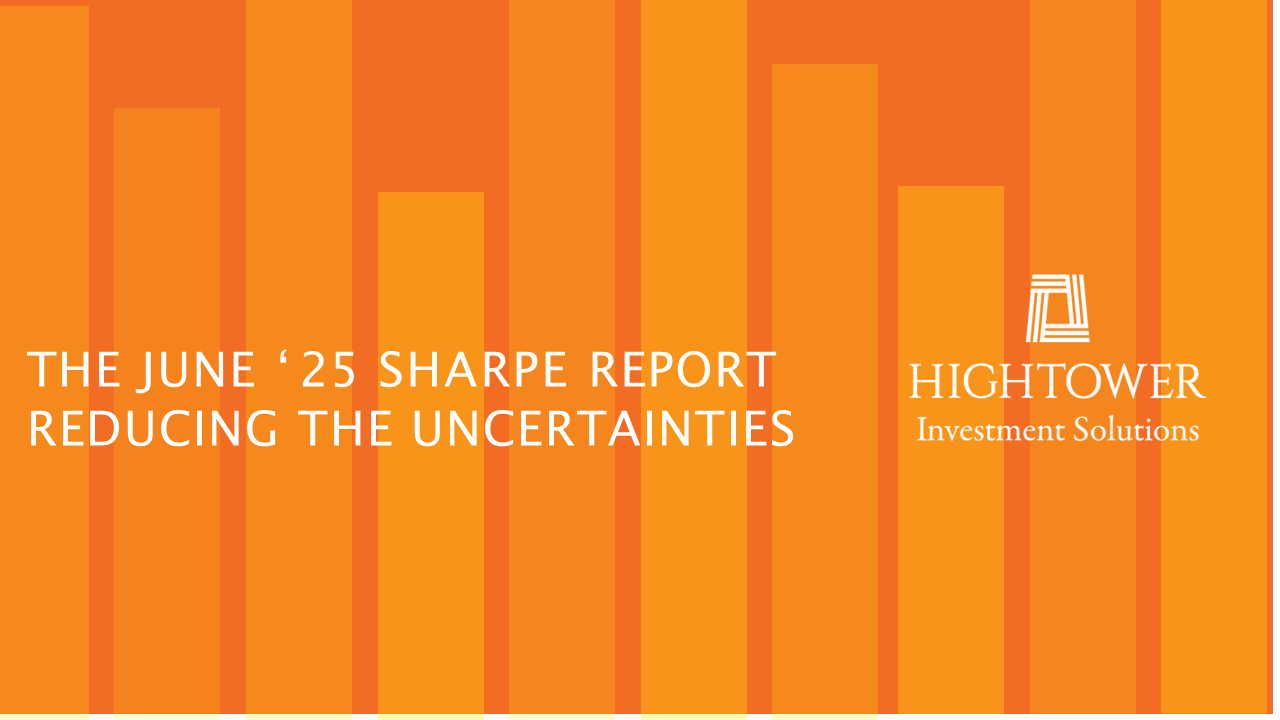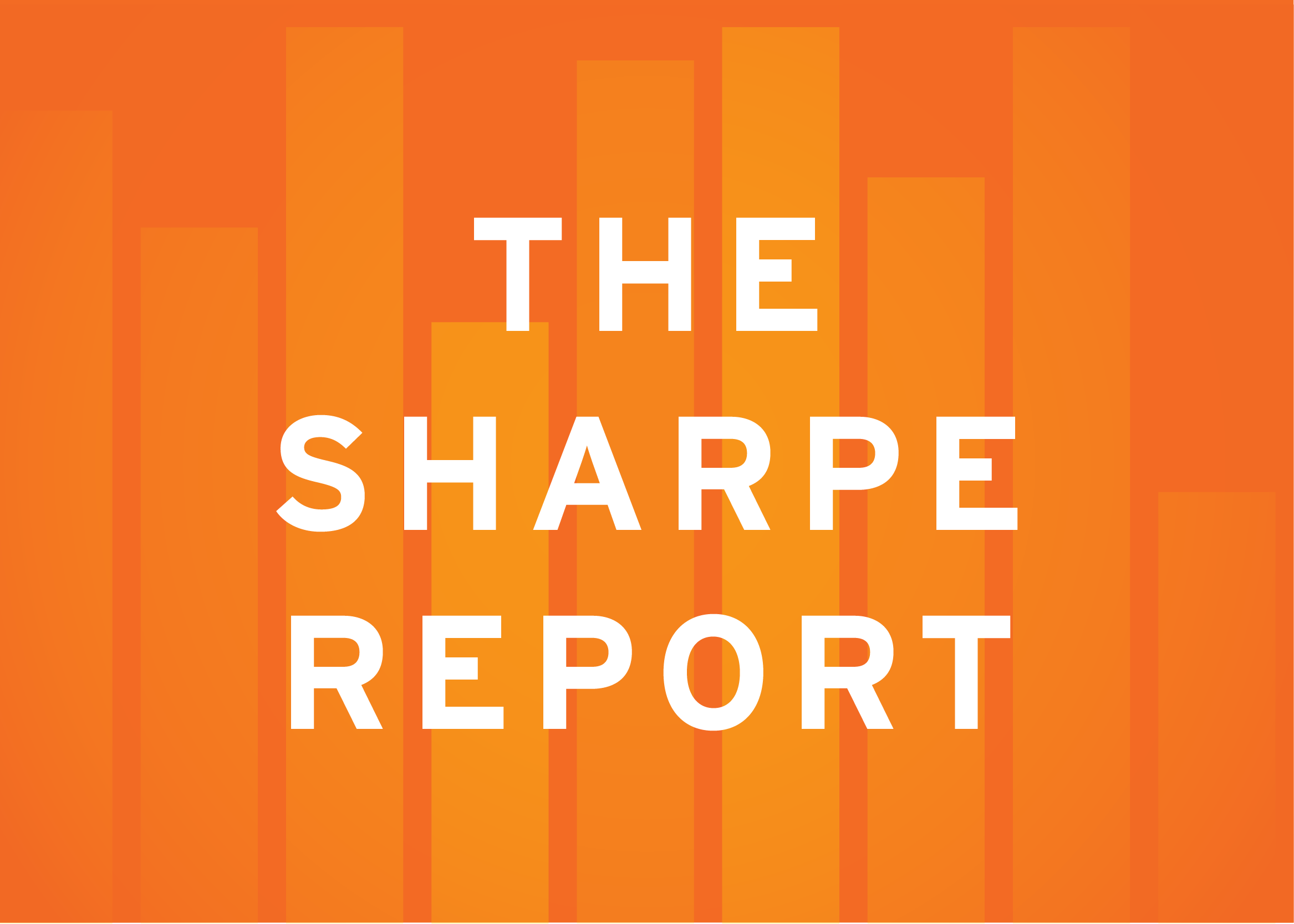
The June Sharpe Report
July 10, 2025June was a continuation of the trend that our economy remains resilient, despite tariff and geopolitical uncertainties. The U.S. economy is still growing strong. The Atlanta Fed GDP tracker measured 2.6% growth at the end of June, now averaging ~2% this year.

The May Sharpe Report
June 6, 2025Economic data continues to show a strong, growing economy. Even soft data (surveys) is now seeing improvement, with U.S. consumer confidence experiencing its largest increase in over four years, rising by 12.3 points to 98.0.

The April Sharpe Report
May 6, 2025Labor market data came in much stronger than expected to begin April, as the economy created 228K new jobs relative to expectations for 140K. Initial jobless claims are tame with the four-week moving average at 220K per week, well below recessionary levels of 350K-375K.

The Evolution of Tariffs
April 14 2025What is a tariff and why are they used? A tariff is a tax imposed by a government on goods and services imported from another country. It is typically calculated as a percentage of the value of goods or as a fixed amount per unit. Tariffs can be thought of as an extra cost added to foreign products entering a country. While they may feel modern, tariffs are not a new phenomenon and are widely used around the globe.

The March Sharpe Report
April 7, 2025Economic data remained mostly unchanged relative to February. Growth is slowing, but we see no signs of a recession, and we Economic data did not improve relative to February. Inflation remains sticky, but the labor market is balanced. All eyes are on are using the volatility to add to our favorite companies. Inflation is sticky and the labor market is holding up while soft data (surveys) is weak.

The February Sharpe Report
March 11, 2025Economic data for February came in weaker-than-expected. January’s jobs data showed less-than-anticipated job growth, while December’s figures were revised upward. Consumer confidence declined, and inflation remained stagnant. PMI Services fell into contraction for the first time in over two years, with firms citing worsening growth in new orders amid political uncertainty. Housing data also continued to show weakness.

Path to Growth is Paved with Intention
February 12, 2025In this white paper, we showcase how female business leaders at growing Hightower advisory practices have personalized the wealth management process to provide women of all types with the specialized services they seek. The paper highlights the specific strategies that contributed to growth.

The January Sharpe Report
February 12, 2025January was a volatile month for investors. Fears of inflation returning, presidential executive orders, and new thinking around AI and capital expenditures had markets fluctuating. Overall, economic data continues to be robust with a healthy labor market, disinflation, and a spending consumer. Equity market participation broadened, and 2024 laggards such as healthcare, materials, and energy saw a turnaround.

Hightower Investment Solutions: 2024 Recap and 2025 Outlook
January 15, 20252024 was highlighted by lower inflation, strong earnings growth, a robust consumer, and declining interest rates. Market participation broadened relative to 2023; the technology sector contributed 43% to the S&P 500's total return in 2024, compared to 55% in 2023.

The December Sharpe Report
January 15, 2025Economic activity expanded in December, ending 2024 on a high note. Third-quarter GDP was revised higher to 3.10%, job gains in November rebounded from October, and weekly jobless claims remained muted, averaging 226K/week.

U.S. Presidential Elections and Financial Markets Don’t Repeat, But Often Rhyme
Sept 23, 2024Following 2016 and 2020, it would have been difficult to predict a more controversial, quickly evolving presidential cycle, but it appears 2024 is shaping up to do just that. With the velocity of information, news outlets are quick to project, pushing the line with partisan narratives and looking to stir division among American voters.

Hallmarks of a Crisis-Proof Business
Feb 07, 2022According to the Investments & Wealth Institute 2021 Investor Report, a sizeable 82% of wealth management clients surveyed indicate that the pandemic has impacted what they feel is important or how they view the future. This shift in mindset is coinciding (or perhaps driving) growing dissatisfaction with financial advisors — particularly among ultra-high-net-worth clients.

Beyond the Paycheck
Sep 28, 2020At some point in time, many financial advisory business owners will find themselves at a crossroads. Whether it is looking for ways to grow their businesses, feeling overwhelmed by the day-to-day tasks that may distract them from client-servicing or are thinking about succession planning, take a deeper look into the emotional aspects of selling your advisory business.
